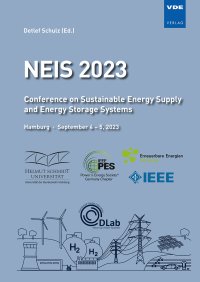Analysis and Characterization of the Energy Consumption in an Electric Bus Fleet
Konferenz: NEIS 2023 - Conference on Sustainable Energy Supply and Energy Storage Systems
04.09.2023–05.09.2023 in Hamburg, Germany
Tagungsband: NEIS 2023
Seiten: 7Sprache: EnglischTyp: PDF
Autoren:
Jablonski, Sammy; Tepe, Benedikt; Zhao, Yuqing; Jossen, Andreas (Chair of Electrical Energy Storage Technology, Department of Energy and Process Engineering, School of Engineering and Design, Technical University of Munich (TUM), Munich, Germany)
Inhalt:
This study presents a comprehensive analysis and characterization of the energy consumption patterns of an electric bus (EB) fleet comprising 101 EBs operated by Hamburger Hochbahn AG. Our focus encompasses a detailed EB-type analysis, temperature dependencies, and the impact of seasonal and weather variations. The analysis and profile data are provided as open data as part of this work. The seasonal analysis reveals a strong correlation between average seasonal temperatures and battery usage. Minimal energy consumption in EBs is identified within the 20 to 22 °C temperature range. Under such reference conditions, non-articulated EBs exhibit an average consumption of approximately 0.92 kWh/km, whereas articulated EBs present a higher consumption rate of around 1.27 kWh/km. Our findings suggest a linear correlation between the reference energy con-sumption and the vehicle's empty weight. Furthermore, we observe an almost linear rise in energy consumption with temperature increases beyond the reference point, primarily due to climatization. For instance, at 30 °C, non-articulated and articulated EBs register about 20% and 35% more energy consumption compared to reference conditions. We identify a strong link between the vehicle's length, thus volume and surface area, and energy consumption at temperatures exceeding 22 °C. Conversely, for temperatures falling below 20 °C, the consumption likewise increases linearly, mainly due to heating requirements. All EBs in the fleet are equipped with a hybrid heating system that combines electric and fossil fuel sources. The primary heating mode is electric, which shifts to fossil fuel support when the ambient temperature falls below a predetermined threshold. This transition mitigates excess battery energy consumption, with observed limits at 6 to 29% above reference consumption. Notably, some non-articulated EBs operate on exclusive electric heating, resulting in a 70 to 94% increase in energy consumption at 0 °C ambient temperature relative to reference conditions. In contrast to the observations at temperatures above reference conditions, we do not observe a link between energy consumption and the vehicle's length for temperatures below the reference point. Our investigation into the impact of weather conditions, specifically rainfall and snow, suggests that precipitation generally causes a slight increase in energy usage, with particular instances reflecting spikes of up to 10%. In contrast, the impact of snowfall on energy consumption proved inconclusive, typically resulting in less than a 5% increase in energy demand.


